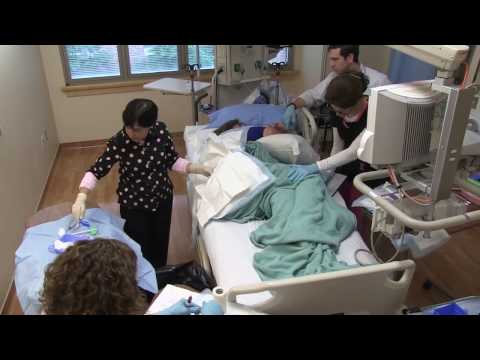Cancer is a complex disease driven by numerous factors: environment, lifestyle, and genetic make-up. In some cases, genetic variation shared within families is related to risk for disease. For over three decades, NCI scientists have studied families in which multiple individuals have developed specific cancers. This research, now aided by new genomic technologies, has led to the discovery of genes and environmental exposures that affect cancer risk in families and the general population.
To see a list of family studies that are actively recruiting participants, visit the Active Clinical Studies page. To enroll or inquire about our active clinical studies, please contact the research team by phone at 800-518-8474 or by email at NCIFamilyStudyReferrals@nih.gov.
DICER1 Pleuropulmonary Blastoma Cancer Predisposition Syndrome (actively recruiting)
Pleuropulmonary blastoma (PPB) is a rare tumor of the lung. Research has shown that PPB may be part of an inherited cancer predisposition syndrome caused by changes in a gene known as DICER1. The PPB Cancer Study is an observational study of children with PPB and their families.
Chordoma Study (actively recruiting)
Chordoma is a rare bone cancer that develops at the base of the skull, in a vertebra, or at end of the spine. DCEG investigators are studying families with multiple relatives with chordoma as well as cases of sporadic chordoma.
Familial Blood and Lymph Node Cancers Study (actively recruiting)
DCEG investigators have been studying the causes of familial blood and lymph node cancers for over 30 years. Ongoing advances in genetics, anticipated applications of advanced technologies, and data from families have allowed research efforts to expand.
Familial Melanoma Studies (actively recruiting)
In collaboration with GenoMEL (Melanoma Genetics Consortium), an international consortium, DCEG investigators are searching for novel melanoma susceptibility genes both within families and a genome-wide association study.
Familial Testicular Cancer Study (actively recruiting)
An investigation into the genetic causes of testicular cancer using carefully-collected biological samples from members of multiple-case families.
Inherited Bone Marrow Failure Syndromes (actively recruiting)
The inherited bone marrow failure syndromes (IBMFS) are a group of rare genetic blood disorders. DCEG investigators are leading a clinical study to better understand how cancers develop in persons with IBMFS.
Li-Fraumeni Syndrome Study (actively recruiting)
Li-Fraumeni Syndrome (LFS) is a rare, inherited disorder that leads to a higher risk of certain cancers. NCI has evaluated families with LFS since the syndrome was first recognized in 1969. DCEG is now expanding this research through a clinical study and participation in a multi-institutional collaboration.
Multidisciplinary Etiologic Studies of Hereditary Breast/Ovarian Cancer
DCEG researchers have been studying the Hereditary Breast/Ovarian Cancer (HBOC) syndrome since the 1960s. This study is now closed to patient enrollment, and researchers are analyzing previously collected data.
Psychosocial Effects of Cancer Predisposition Syndromes
The Clinical Genetics Branch investigates and defines best practices of medical, psychosocial, and genetic counseling, as well as risk assessment and communication, to counsel and care for at-risk individuals and families.
RASopathies Study (actively recruiting)
RASopathies Study is a clinical study that aims to better understand the development of tumors in patients with a RASopathy syndrome, which is a condition or disorder caused by changes in genes that send signals across the Ras/mitogen-activated protein kinase (Ras/MAPK) pathway.
Waldenström's Macroglobulinemia Study (actively recruiting)
Waldenström's macroglobulinemia (WM) is a rare type of tumor that belongs to a group of disorders called lymphoproliferative diseases. DCEG researchers are leading a study to determine what causes WM to sometimes develop in two or more family members.
Read about the public health impact of family studies.

